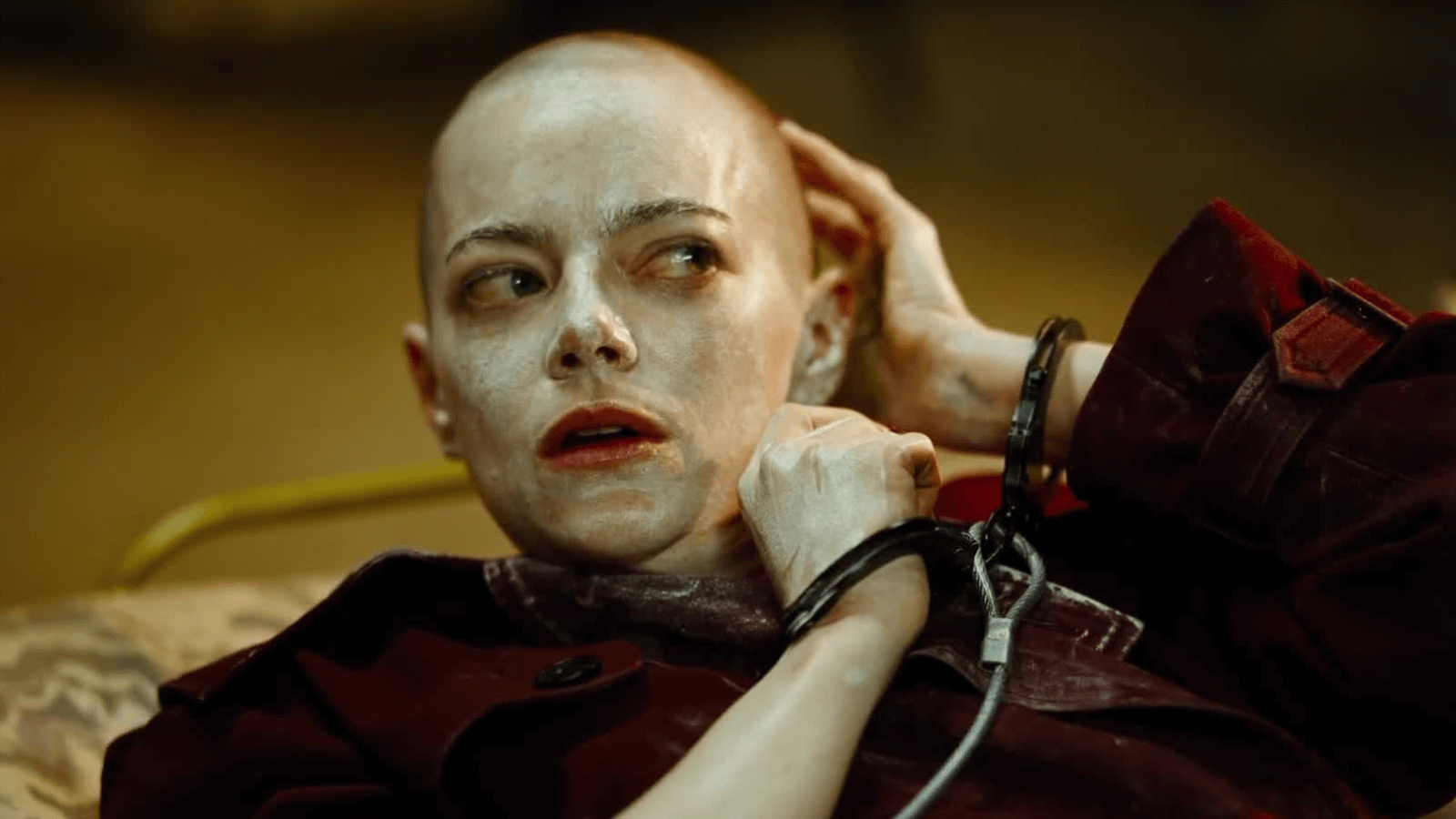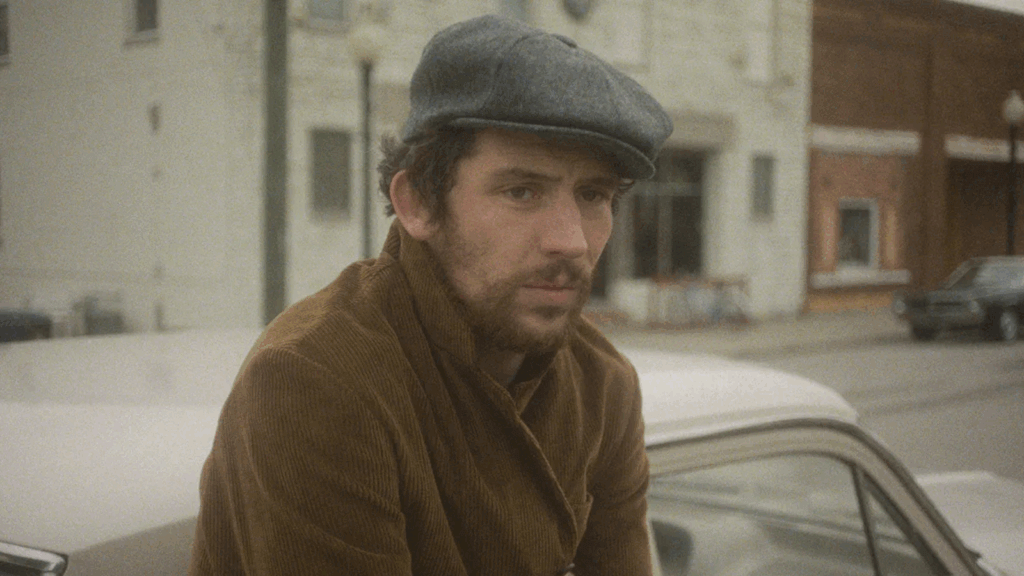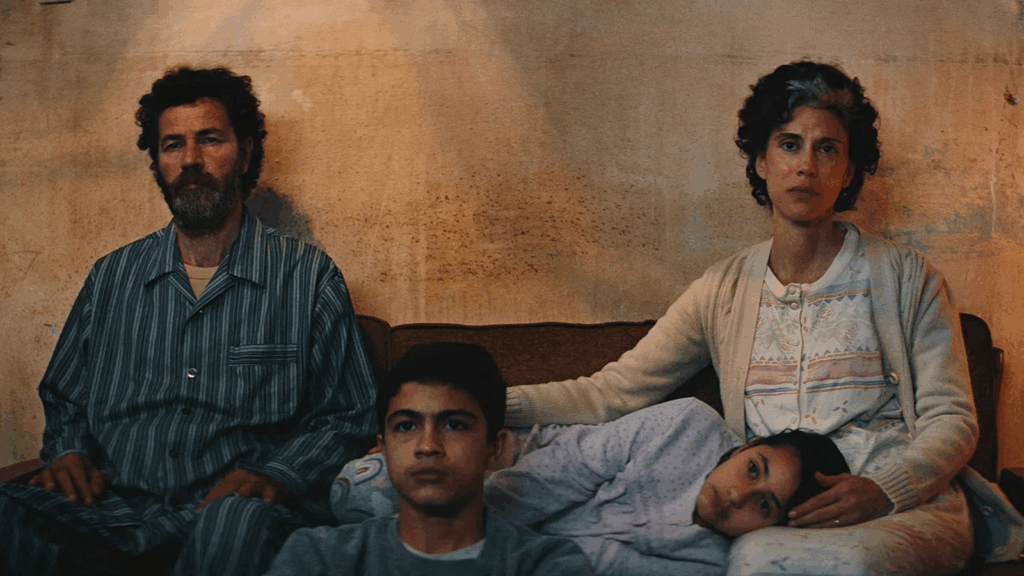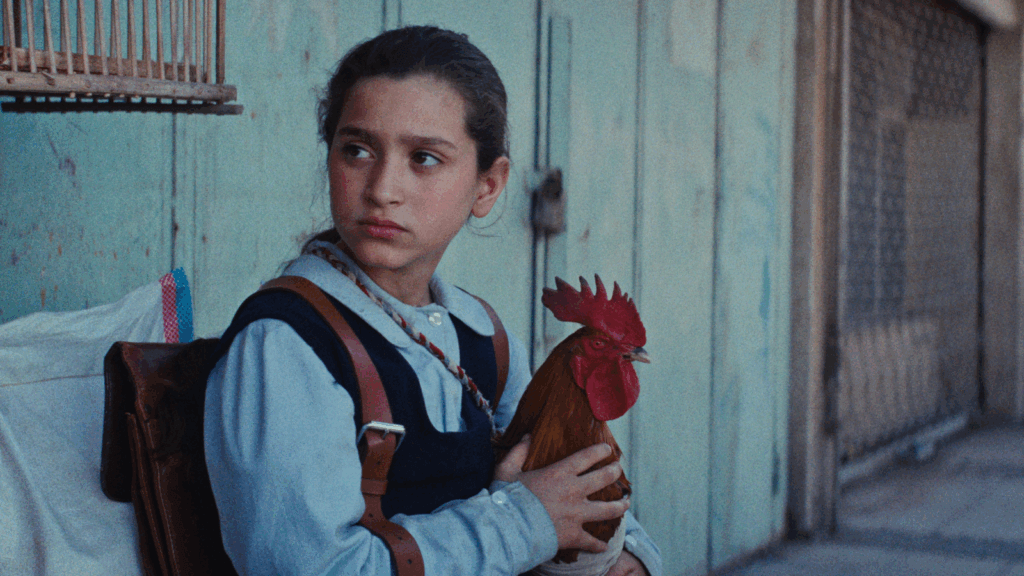
Zurich Film Festival Dispatch – Part 3
By David Hill | October 9, 2025
The 21st Zurich Film Festival ran from September 25 to October 5. Check here for the full lineup. Some films mentioned below will be reviewed separately in full-length writeups, but for now, here are some initial impressions. Also, check out Part 1 and Part 2.
Bugonia
Gala Premieres
Yorgos Lanthimos continues his prolific streak, delivering his third feature in as many years with Bugonia. His new movie is a loose remake of the 2003 South Korean film Save the Green Planet!, and its title refers to an ancient Greek myth according to which bees spontaneously generate from the carcass of a dead ox. Bugonia follows a conspiracist beekeeper named Teddy (Jesse Plemons) who believes that the global bee population is dwindling due to the actions of a pharmaceutical corporation. This might not sound too far-fetched, but he is also convinced that the corporation’s CEO, Michelle Fuller (Emma Stone), is secretly an alien intent on destroying planet Earth. With the help of his dim-witted cousin Don (Aidan Delbis), Teddy abducts Fuller and subjects her to interrogation and bizarre rituals to “prove” her alien identity.
Despite featuring Lanthimos’ trademark absurdity and dark humor, Bugonia is not as consistently funny or entertaining as his best work (The Lobster, Poor Things). With its small cast and limited setting, it also feels more contained and less ambitious than what viewers have come to expect from him in recent years. That said, Bugonia still has much to offer. In particular, it successfully immerses the audience in the mind of a conspiracy theorist. Thanks to excellent writing and an outstanding performance from Plemons, Teddy is a fascinating character and much more than a mere caricature. Short but important flashbacks—filmed in black-and-white and recalling iconic imagery from Andrei Tarkovsky’s Mirror and Federico Fellini’s 8½—offer a glimpse into his past. Gradually, the audience develops empathy for him despite his absurd actions and convictions. Because of this, as well as the huge and ever-increasing divide between the haves and the have-nots, one starts to see why Teddy cannot grasp how someone like Fuller could possibly be from the same planet.
Like Teddy, Fuller is an expertly written and performed character. After her abduction, an intriguing battle of wills ensues, and she employs various psychological tactics to free herself. As Teddy and Fuller seem to live in parallel realities, they cannot find a common denominator and constantly talk past one another. Through their interactions, Bugonia offers potent commentary on the polarization of modern society. Moreover, although nothing about Fuller seems to suggest she is not human, the audience is so deeply immersed in Teddy’s conspiracist mindset that a kernel of doubt remains, providing additional suspense and tension. Unfortunately, the small number of side characters are not as fully realized as Teddy and Fuller. Don is mostly used for comic relief and as a sounding board for Teddy’s conspiracy theories, though his vulnerability occasionally yields emotional or thematic depth. Meanwhile, a local police officer who used to be Teddy’s babysitter (Stavros Halkias) is too thinly sketched to make a strong impact.
All things considered, Bugonia is another strong addition to Lanthimos’ exceptional filmography. Its minor flaws are easy to overlook in light of thought-provoking social commentary and outstanding central performances—as well as a great ending that not only ups the ante but is both silly and deeply poignant in a way only Lanthimos could have pulled off. 3.5/4 stars

The Mastermind
Signatures
Set in early 1970s Massachusetts, Kelly Reichardt’s ironically titled The Mastermind follows a suburban family man (Josh O’Connor—excellent). Disillusioned with his life and feeling entitled to more, he stages a heist to steal paintings from a local museum. This could have been the premise for a conventional Hollywood thriller, but as viewers have come to expect from Reichardt, she aims for something far quieter and deeper—despite Rob Mazurek’s jazzy, expressive score injecting nervous energy into the early proceedings and bringing an exciting new element to her filmmaking.
What follows is a fascinating and thematically layered character study that feels distinctly Reichardtian. The Mastermind may be deliberately paced and light on plot, but it is rich beneath the surface—once again, Reichardt doing “so much with so little” is an apt description. Her film functions as an expert deconstruction of the heist genre and, by extension, masculinity. It also explores the turbulent political and social context of its setting, culminating in one of the best endings in Reichardt’s filmography.
The Mastermind is further elevated by excellent work from her regular cinematographer Christopher Blauvelt and strong performances from the entire cast, which also includes Alana Haim, Hope Davis, Bill Camp, John Magaro, and Gaby Hoffmann. As a fan of Reichardt’s work—full disclosure: she is one of my favorite living filmmakers—I was completely engrossed from start to finish. 4/4 stars

Rental Family
Gala Premieres
Rental Family, the new film by Hikari, follows a lonely American actor living in Tokyo who is struggling to land proper acting gigs (Brendan Fraser). To make ends meet, he starts working for a rental family service—real-life Japanese businesses that provide clients with actors who portray friends or family members during social events.
One of the actor’s assignments is to act as the father of an 11-year-old girl, whose real father has long been out of the picture. The girl’s mother is trying to get her daughter into a private school and believes she will have better chances if the school does not know she is a single parent. Complicating matters, the mother wants her daughter to believe that the actor is her real father, so she will not have to lie during the application process. Soon, the boundaries between what is performed and what is real start to blur.
This is a promising premise that could explore interesting moral questions and comment on Japanese society. Alas, Hikari is more interested in giving the material a fairly standard feel-good treatment. As a result, Rental Family feels superficial and manipulative. While it might appeal to viewers looking for easily digestible entertainment, anyone hoping for something deeper will be disappointed. At least the film remains watchable thanks to its interesting premise and some redeeming qualities—such as a charming performance from Fraser, its cultural specificity, and a few good comedic moments. 2/4 stars

All That’s Left of You
Gala Premieres
All That’s Left of You, the new film by Cherien Dabis, could not be more timely. It is a historical drama that follows a Palestinian family through three generations, from 1948 to 2022. Through the eyes of the family, the audience witnesses the traumatic effects of displacement and occupation on Palestinians. In terms of filmmaking, All That’s Left of You is relatively straightforward and feels familiar. Conveying history through the point of view of ordinary people affected by it has been done many times before—a recent example being last year’s Oscar-winning I’m Still Here. Dabis, who came to Zurich to present her new film, aptly described it as “emotional education” and freely admitted that it was designed to reach as large an audience as possible.
Such an approach is effective for imparting history, but it is not without its drawbacks. Often, films of this kind end up feeling dry and insubstantial beyond the importance of their historical content. However, All That’s Left of You transcends the limits of its formula for two main reasons. The first is its timely and important subject matter. Over the past 80 years, Palestinian stories have been largely marginalized in the West. All That’s Left of You corrects this and provides vital context to the Israeli–Palestinian conflict. Among other things, it conveys that the current events in Gaza are not merely a response to the attacks by Hamas on 7 October 2023, but part of a much longer history of oppression and displacement of the Palestinian people.
The second aspect that elevates All That’s Left of You is its impressive execution. Dabis not only writes and directs but also co-stars—and she excels in all three roles. By grounding her film in relatable characters who are expertly written and performed, she turns it into much more than a mere history lesson. It is also a deeply moving family saga that proves engaging from start to finish. Moreover, Dabis refrains from populist anger or sensationalism, instead delivering a nuanced portrayal that not only shows the hardships and traumas her characters must endure but also their resilience, dignity, and love for each other. All That’s Left of You is all the more powerful for this restraint. 3.5/4 stars

2000 Meters to Andriivka
Border Lines
Mstyslav Chernov’s follow-up to his Oscar-winning 20 Days in Mariupol is another powerful and devastating documentary about the war in Ukraine. Whereas his previous film was set at the beginning of the war, 2000 Meters to Andriivka takes place during the Ukrainian counteroffensive in the summer of 2023. The film follows Ukrainian soldiers as they try to liberate the Russian-occupied village of Andriivka, which—due to minefields—is only accessible on foot through a narrow strip of forest.
By employing footage from Ukrainian soldiers’ helmet cameras as they advance through the forest, 2000 Meters to Andriivka immerses its audience directly on the battlefield. At times, the film resembles a first-person shooter—with the difference that, of course, what is depicted here is real. As one of the soldiers aptly puts it, entering the forest leading to Andriivka feels like landing on another planet where everything is trying to kill you. Consequently, watching the film is an intense and deeply upsetting experience that is not for the faint of heart.
The film’s raw and unflinching depiction of the horrors on the Ukrainian battlefield would already be enough to make 2000 Meters to Andriivka a vital and compelling documentary. However, Chernov’s fearless and brilliant filmmaking—even more accomplished here than in 20 Days in Mariupol—elevates it further. The film also includes quieter moments in which we come to know and deeply care about the soldiers, making the inevitable losses during the advance even more impactful.
After one of the soldiers loses his life, the film cuts to his funeral in his hometown to powerful effect. Later, it shows heartbreaking footage of the destruction caused by Russian forces in Andriivka and of a vast cemetery filled with graves of fallen Ukrainian soldiers—both accompanied effectively by an ominous score from composer Sam Slater. Through such moments, 2000 Meters to Andriivka conveys the immense losses the Ukrainian people have endured due to Russia’s illegal invasion in a way that feels far more tangible than the mere numbers we hear on the news.
In conclusion, 2000 Meters to Andriivka is one of the year’s best and most essential documentaries. It not only lives up to but even surpasses its Oscar-winning predecessor. Although undeniably bleak and difficult to watch, it deserves to be seen by as many people as possible—not just for its urgent subject matter, but also for Chernov’s extraordinary filmmaking. 4/4 stars

The President’s Cake
Feature Film Competition
Hasan Hadi’s feature debut, The President’s Cake, is set in 1990s Iraq and follows a nine-year-old girl named Lamia. She is chosen by her school to bake a cake for the mandatory celebration of Saddam Hussein’s birthday. In a time of food shortages and extreme poverty due to war and UN sanctions, she struggles to gather the necessary ingredients for the cake.
Through Lamia’s eyes, The President’s Cake provides an interesting look at Iraqi society and the difficult living conditions under Hussein’s regime. It does not offer much else, however—the film’s episodic story is thin and uneven, and it feels overly familiar. Using a child’s perspective to weave social commentary is a well-worn template in Middle Eastern cinema and has been employed to stronger effect in the past (Jafar Panahi’s excellent The White Balloon comes to mind).
Still, The President’s Cake is worth seeing for successfully immersing the viewer in a setting rarely depicted in cinema. For some, this might be enough to overlook its flaws in storytelling. 2.5/4 stars

David Hill is a lawyer from Switzerland. He has long had a passion for cinema, and he devotes most of his spare time to watching and researching films. His primary interest focuses on arthouse films, and he occasionally contributes to Deep Focus Review as a guest writer.
Thank You for Supporting Independent Film Criticism
If the work on DFR has added something meaningful to your love of movies, please consider supporting it.
Here are a few ways to show your support: make a one-time donation, join DFR’s Patreon for access to exclusive writing, or show your support in other ways.
Your contribution helps keep this site running independently. However you choose to support the site, please know that it’s appreciated.
Thank you for reading, and for making this work possible.
Brian Eggert | Critic, Founder
Deep Focus Review




